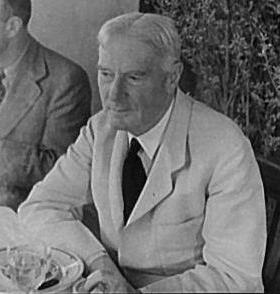A Quote by Sydney Smith
Manners are like the shadows of virtues, they are the momentary display of those qualities which our fellow creatures love and respect.
Related Quotes
Our virtues themselves are not free and floating qualities over which we retain a permanent control and power of disposal; they come to be so closely linked in our minds with the actions in conjunction with which we have made it our duty to exercise them that if we come to engage in an activity of a different kind, it catches us off guard and without the slightest awareness that it might involve the application of those same virtues.
People with self-respect exhibit a certain toughness, a kind of moral nerve; they display what was once called *character,* a quality which, although approved in the abstract, sometimes loses ground to the other, more instantly negotiable virtues.... character--the willingness to accept responsibility for one's own life--is the source from which self-respect springs.
Manners or etiquette ('accessibility, affability, politeness, refinement, propriety, courtesy, and ingratiating and captivating behavior') call for no large measure of moral determination and cannot, therefore, be reckoned as virtues. Even though manners are no virtues, they are a means of developing virtue.... The more we refine the crude elements in our nature, the more we improve our humanity and the more capable it grows of feeling the driving force of virtuous principles.
The definitions of humanism are many, but let us here take it to be the attitude of those men who think it an advantage to live in society, and, at that, in a complex and highly developed society, and who believe that man fulfills his nature and reaches his proper stature in this circumstance. The personal virtues which humanism cherishes are intelligence, amenity, and tolerance; the particular courage it asks for is that which is exercised in the support of these virtues. The qualities of intelligence which it chiefly prizes are modulation and flexibility.
There are several kinds of love. One is a selfish, mean, grasping, egotistical thing which uses love for self-importance. This is the ugly and crippling kind. The other is an outpouring of everything good in you — of kindness and consideration and respect — not only the social respect of manners but the greater respect which is recognition of another person as unique and valuable. The first kind can make you sick and small and weak but the second can release in you strength, and courage and goodness and even wisdom you didn’t know you had.
We ought to deal kindly with all, and to manifest those qualities which spring naturally from a heart tender and full of Christian charity; such as affability, love and humility. These virtues serve wonderfully to gain the hearts of men, and to encourage them to embrace things that are more repugnant to nature.





































